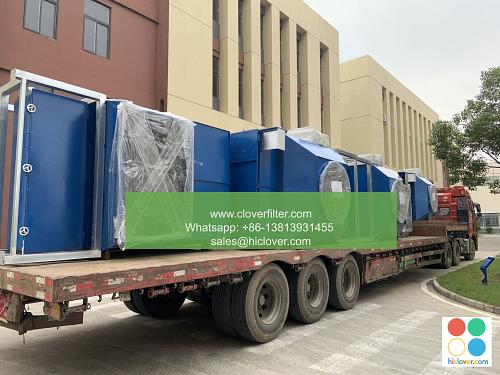Air Filter Research: A Review of Recent Studies

Air filter research has been a rapidly evolving field in recent years, with a plethora of studies focusing on the development of more efficient, effective, and sustainable air filtration systems. This article aims to provide a comprehensive review of recent studies in air filter research, highlighting various application areas and key findings.
Introduction to Air Filter Research
Air filters play a crucial role in maintaining indoor air quality, removing airborne pollutants and particulate matter that can exacerbate respiratory issues and other health problems. Recent studies have focused on the development of air filters with improved filtration efficiency, increased durability, and reduced environmental impact. Researchers have explored various materials and technologies, including nanofibers, activated carbon, and UV-C light, to enhance air filter performance.
Application Areas of Air Filter Research
Air filter research has numerous application areas, including:
* Indoor air quality improvement: Studies have investigated the use of air filters in residential and commercial buildings to reduce exposure to airborne pollutants and improve occupant health.
* Aerospace and automotive industries: Researchers have developed air filters for use in aircraft and vehicles, focusing on high-efficiency filtration systems that can withstand extreme temperatures and humidity levels.
* Healthcare and medical applications: Air filter research has explored the use of HEPA filters and ultrafine particle filters in healthcare settings to reduce the transmission of airborne pathogens and improve patient outcomes.
* Industrial and manufacturing processes: Studies have investigated the use of air filters to control airborne pollutants and particulate matter in industrial settings, reducing the risk of occupational exposure and environmental pollution.
Recent Advances in Air Filter Technologies
Recent studies have led to significant advances in air filter technologies, including:
* Nanofiber-based air filters: Researchers have developed air filters using nanofibers, which offer improved filtration efficiency and increased surface area for pollutant capture.
* Activated carbon air filters: Studies have explored the use of activated carbon in air filters, which can effectively capture volatile organic compounds (VOCs) and other gaseous pollutants.
* UV-C light-based air disinfection: Researchers have investigated the use of UV-C light to disinfect airborne microorganisms, offering a chemical-free alternative to traditional air disinfection methods.
Challenges and Future Directions in Air Filter Research
Despite recent advances, air filter research still faces several challenges, including:
* Trade-offs between filtration efficiency and pressure drop: Researchers must balance the need for high filtration efficiency with the requirement for minimal pressure drop, which can impact air filter performance and energy efficiency.
* Environmental sustainability and disposal: Studies have highlighted the need for more sustainable air filter materials and disposal methods, reducing the environmental impact of air filter production and waste.
* Standardization and regulation: Researchers have called for greater standardization and regulation in the air filter industry, ensuring that air filters meet minimum performance standards and are tested using standardized protocols.
Conclusion
Air filter research has made significant progress in recent years, with a focus on developing more efficient, effective, and sustainable air filtration systems. By highlighting various application areas and key findings, this review aims to provide a comprehensive overview of recent studies in air filter research. As the field continues to evolve, researchers must address ongoing challenges and explore new technologies and materials to improve air filter performance and reduce environmental impact. You haven’t asked a question or provided any context for me to respond to. Please provide more information or ask a specific question, and I’ll do my best to assist you. What’s on your mind?

